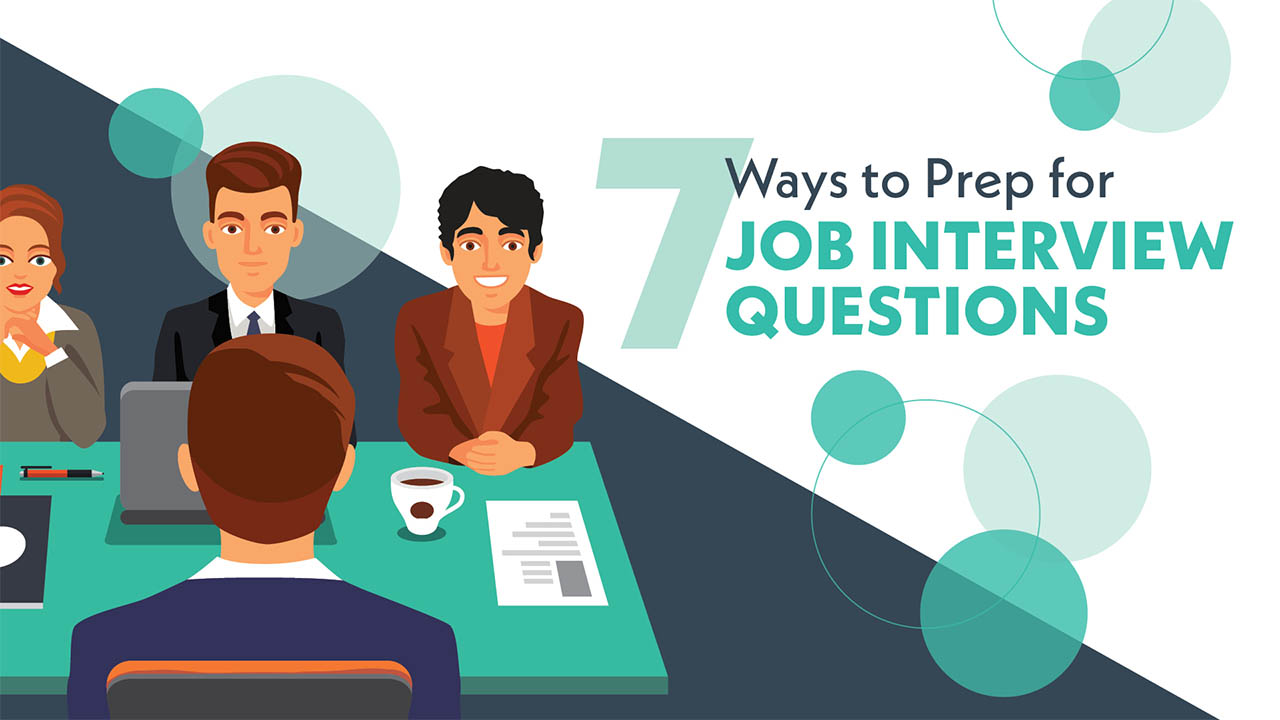7 ways to prep for job interview questions

Job hunting can be a stressful process, but we all know that scoring an interview can be just as daunting.
The nights of agonizing over what you're going to say and talking to yourself in the mirror begin. Never have we monologued more in our lives and sweat holes through shirts than we do when preparing for interviews. It's a hard and anxiety-ridden process, especially when the interview can be a big move in your career.
However, you are not alone, and there are always better ways to prepare in order to ace the interview and make that career move! Here are seven ways to get you started.
1. Do the homework
I learned this the hard way, but NEVER go into an interview without researching the company you are working for. As soon as they ask you about what you think of the company values/mission and you draw up a blank, know that you lost a point there. Take some time to look up the company's “About” page and understand their values, standards, mission statement, and history. That way, when they ask you about specifics relating to their agency, you can be more confident about your answers. Google the company, know their services, and if they have press releases, read them so that you are up to date with what is going on with their company currently. This will show interviewers that you really want to be part of their team and that you are a person who takes initiative.
2. The common questions
If you have been to enough interviews, you start to realize that a lot of the core questions are very similar. "Why did you choose to apply for this job?'', "When was a time you took leadership in a situation?" or "What did you do to deal with an uncomfortable situation at the workplace?", and the real hard one because as Canadians we hate to compliment ourselves, "What skills or talents can you bring to the team?" Whatever job you are applying to, the common questions are basically the same and simply vary in word choice or are slightly changed to fit the type of job you are applying for. The best way to prepare is to Google these common questions and write down what you would say so a response comes to mind when you are asked at the interview.
3. See what they see
Google yourself. Go to the biggest online resource that all of the public has access to and search your name and see what comes up. This is what employers can see, and you need to make sure that what they are seeing is the representation of yourself you would like them to see. If you feel that the level of professionalism you portray in person does not match your online counterpart, then there may be changes you need to make so that interviewers don't already have a negative opinion of you before you walk in.
4. Role play
Because of this wonderous pandemic, please note the sarcasm, you may not have anyone to role play with. Fear not, your beautiful reflection is ready for the job. Remember how we said talking to a mirror might be a thing? Well, get comfortable with taking glances at yourself, because the best way to prepare is to talk out what you are going to say and looking at a set of eyes will get you in shape for the real thing. Ask yourself questions as the interviewer and answer them, with the confidence I know you have, as the interviewee. Make sure to maintain the eye contact because looking around the room or at the ground speaks volumes about you, and what they hear is not the good stuff.
5. Goals
One of the most asked questions in an interview are your goals for the future. I separate this from the common questions because it’s a whole segment of preparation on its own. You have to reflect on your past experiences in academia, work, volunteering and extra curriculars to answer this question properly. Making goals tailored to the company you are interviewing for is essential. A lot of the time, employers ask if you have any goals you want to achieve from the job they are offering. You need to have an understanding of the position and what it encompasses in order to answer this question confidently. So, prepare goals and answer from the heart.
6. Keep a record
If you see yourself doing a lot of interviews, keep a written record of how they went and reflections of the experience. The best way to learn, as they always say, is from your mistakes. Record how your interview went, what was asked, how you responded, the duration of the interview, and things you would have changed to improve the experience. This is the best way to learn in order to better yourself as you do more interviews in the future.
7. Be positive, and most of all be honest
If you are going to only take one thing from this, it should be the following piece of advice. Go in confident and feeling positive of your capabilities, and most importantly be honest. Interviewers are used to people putting on masks and acting their best selves in order to get a position, but what always impresses them the most is honesty and genuineness. The more you try to make up scenarios and make yourself seem more impressive, the harder it will be to maintain the ruse. So, do yourself a favour, and make the process easier for you! Be true, and you will not regret the results. Good luck on the job hunt and remember to be yourself!















